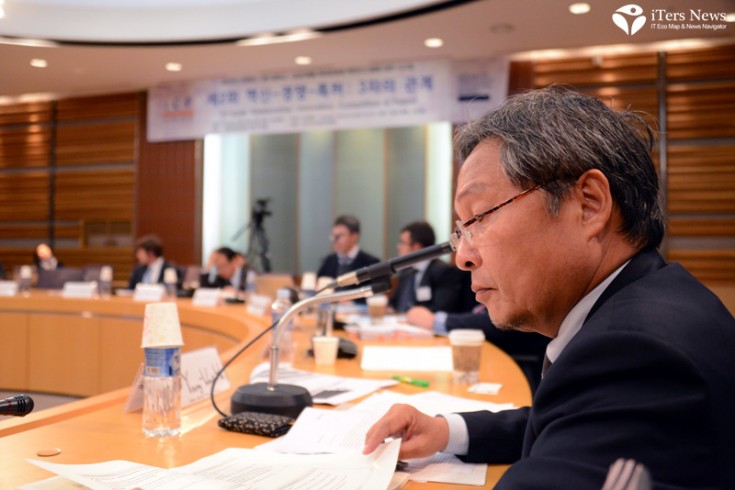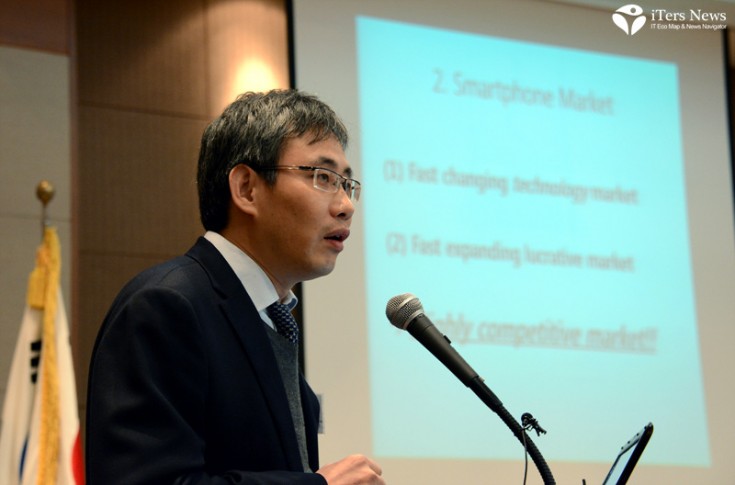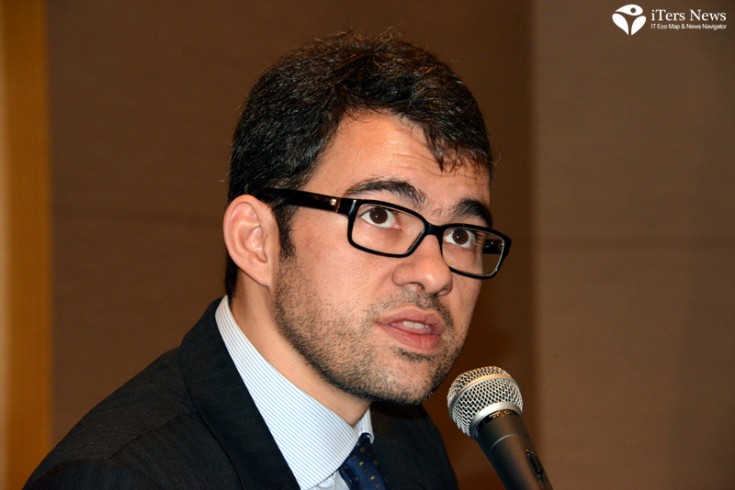Samsung vs. Apple: A matter of the scales between SEPs and non-SEPs
(iTers News) - The most contentious point of the embroiling patent war between Samsung Electronics and Apple, Inc. is the difference in their respective interpretation of standard-essential patents, or SEPs.
The differences in turn lead to the disagreement to their respective evaluations of SEPs and non-SEPs like Trade Dresses.
To settle the patent disputes between both of the companies amicably and peacefully, patent attorneys gathered here in Seoul pointed out that there should be a concerted effort to fairly and equally equate the value of SEPs with that of non-SEPs.
Anti-trust regulators like ITC of the U.S. and EU Commission were also recommended to find a proper and mutually beneficial way not to discourage technology innovations by undervaluing SEPs. But also they were warned not to overly intervene into the IPRs, because their over intervention would threaten to distort the very nature of intellectual property rights.
Hold the scales fairly
(Photo : Miguel Rato, partner with Shearman and Sterling)
At a seminar titled as ‘Tri-Polar Relationship: Innovation, Competition and Patent’ held in Seoul, Korea, Miguel Rato, partner with Shearman and Sterling said. “It (over-intervention) is dangerous from an economic perspective. It is dangerous from a legal perspective, too. A case similar to an investigation by the European Commission could undermine the fundamental rights of access to courts, if it could be found that the recourse to court-led injunction is abusive.”
Added he, “Any attempt to change this test in favor of other theories threatens to undermine legal certainty in a critical area of economy.”
Echoing his viewpoint, Eric Reifschneider, senior vice-president and general manager with Qualcomm Technology Licensing, said, “Standard patents are just as important to standardizing companies to do R&D and make big bet on technology as any other kinds of patents. If the changes in the rule of standard patents devalue them and make them not as good as other patents, you gonna to change the landscape.”
Added he, “You gonna to make that companies not to invest as much in developing certain kinds of technologies as they were contributing their technology to standard. Over the long-run, obviously, that means standard will be based on inferior technology. That’s bad thing.”
(Photo: Eric Reifschneider, senior vice-president with Qualcomm)
Standard-essential patents are referred to a type of patents that are granted to a certain of technologies that form part of an industry-wide standard technology like WCDAM and LTE.
The goal of setting an industry-wide standard is to enable different companies’ products to interact, interoperate, and communicate with each other.
Standard-essential patents are very instrumental in innovations and technology breakthroughs, because all SEPs combine together to create new market opportunities like WCDAM, LTE, and smartphones, motivating companies to contribute their technology to the standard to share their pieces of the pie.
Breach of FRAND
Standardization efforts also can enable all the players not only to share investment risks and development costs, but also cut the time to market shorter than otherwise.
As the standardization is inherently very pro-competitive and mutually beneficial, however, standard-setting bodies like ETSI and ITU asked all the contributors to the standardization to make pledge that they should license their SEPs on FRAND, fair, reasonable, and non-discriminatory terms, declaring their IPs potentially essential to a standard.

ETSI and ITU stand for European Telecommunications Standards Institute and International Telecommunication Union, respectively.
That’s what Apple is trying to take advantage of to defend its case against Samsung injunction litigation that the Cupertino, California-based company infringed on its SEPs on 3G baseband chip.
To settle the SEP litigation, Samsung demanded that Apple pay 2.5% of the price of the iPhone for the royalty, according to Jin-Yul Ju, professor with Pusan University Law School.
Apple defended its case claiming that the 2.5% royalty is expensive and unreasonable, and blamed Samsung for breaching FRAND terms, abusing its dominant market position and breaching competition laws.
Valuable as trade dress
Based on the Apple’s anti-competition claims, the US Department of Justice, the EU Commission, and the Fair Trade Commission of Korea are now investigating where Samsung has abused its dominant market position.
On the contrary, the Northern California court issued a jury verdict in late August that Samsung should pay Apple US$1.049 billion in damages for its infringements on Apple Trade Dress patents, which are part of non-SEPs.
At the center of the twisted fortunes between Samsung and Apple is that there is no fair and objective measuring mechanism to evaluate the value of SEPs. Neither do standard-setting bodies have an authority to determine whether the patent is actually valid, or whether it is indeed technically essential to the standard.

Yet, SEPs are as valuable as non-SEPs. And, they deserve to be as much protected and respected as Non-SEPs like Apple’s Trade Dresses.
That’s because SEPs and FRAND-based licensing scheme spurs up competition and thus motivate innovations, allowing a number of newcomers to enter the ever-expanding mobile phone ecosystem.
Cases in point that, although MediaTek made a late foray into baseband chip market late, the Taiwanese fabless latecomer captured significant market share in the past five years, while HTC, a Taiwanese smartphone maker, also made it to the who’s who list of global top-tier smart phone makers.
“All the evidence is that existing FRAND regime has worked very well. How many people in the world have cell phones, smartphone, and access to the Internet? So much that happens, you know, during the (FRAND) regime,” stressed Eric Reifschneider with Qualcomm Technology Licensing.
“Some companies are complaining about that. Some sort of ironically, they are complaining that , once they are able to enter this market because of the FRAND system of the standardization of the technology, they are not taking advantage of it. Please keep that in mind when you are heard about of this type of complaints,” added he.
Videos and Photos by JH BAE

